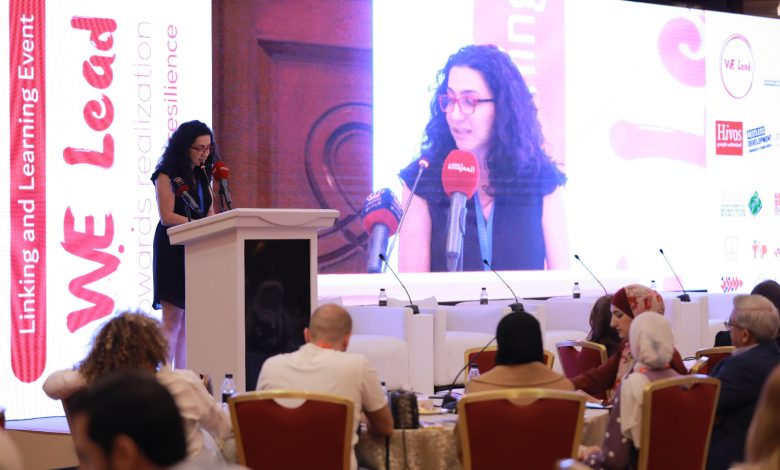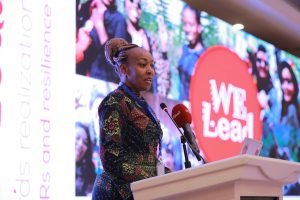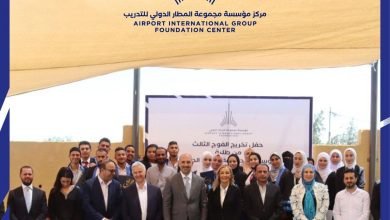Conference emphasizes enhancing legislative framework for access to sexual & reproductive health services

Jordan Daily – The participants at the Linking and Learning conference, “We Lead – Towards Achieving Sexual and Reproductive Health Rights and Resilience,” held in Amman on May 28-29, put forth important recommendations in order to achieve significant progress in advancing sexual and reproductive health rights (SRHR) and building resilient communities.
The participants highlighted the crucial need to prioritize and enhance the accessibility and provision of comprehensive sexual and reproductive health services within public healthcare facilities. They emphasized the importance of inclusivity, ensuring that individuals of all genders, including girls, women, men and adolescents, are granted equal access without any discrimination or structural barriers.
At the end of conference on Monday, participants called for a comprehensive review and assessment of national laws, legislation, policies, and regulations related to reproductive and sexual health. They emphasized the importance of aligning these regulations with the principles of family health and incorporating introductory procedures. Furthermore, they stressed the need for this review process to involve the active participation of civil society organizations and all stakeholders in the field of SRHR.
Representatives from the Ministry of Health, diverse local and national civil society organizations, governmental institutions, and national bodies jointly advocated for the establishment of comprehensive national data systems, to effectively track and monitor progresss and identify gaps and areas of improvement in the provision of sexual and reproductive health services. It was strongly advised that this data be categorized by age, gender, nationality, disability, marital status, and geographic location, to guarantee everyone’s fundamental rights to reproductive and sexual health, leaving no one behind.
In addition, participants recommended the proper implementation of Law on the Rights of Persons with Disabilities No. 20 for the Year 2017 and its provisions, they emphasized the need to prioritize and ensure that accessible forms of information pertaining to SRHR are readily available to people living with a disabilities, especially women and girls.
Moreover, participants emphasized the crucial need for healthcare providers to fulfill their commitments and obligations by promptly reporting incidents of violence in accordance with the Protection from Domestic Violence Law No. 15 of 2017 and the Law on the Rights of Persons with Disabilities No. 20 for the Year 2017. One of the most prominent recommendations put forth at the conference was the expansion of partnerships between national institutions and civil society organizations, to unite efforts and goals concerning SRHR issues, and avoid unnecessary program repetition. The participants underscored the importance of collective action and cooperation to maximize the impact of interventions in this crucial area.

A particular focus was placed on the youth’s central role and their meaningful participation in programming, emphasizing the significance of their involvement alongside rights holders and other stakeholders throughout the various stages of programming, beginning with the planning phase, to build relationships between youth and the community and ensure a sustainable, youth-friendly environment that is empowering for all.
Additionally, participants advised that policies and processes be put in place to protect the privacy and confidentiality of those who apply for and receive SRHR services. They also emphasized the importance of concentrating on rural areas, funding mobile clinics, including mental health services in medical insurance coverage and enacting an effective the referral system.
This Linking and Learning Conference was organized as part of the We Lead Project, an innovative five-year programme launched in 2021 by Hivos and five other consortium members: Positive Vibes, Restless Development, FCAM, FEMNET, and Marsa. This Programme is funded by the Dutch Ministry of Foreign Affairs and strives to empower, strengthen and amplify the voices and position of young women whose sexual and reproductive health and rights are neglected the most.
The conference participants engaged in extensive discussions over a span of two days, delving into multiple dimensions of the right to sexual and reproductive health. Various aspects were explored, including human rights and legal considerations, community awareness, and the pivotal role of service providers. In addition to addressing concerns regarding access to healthcare, the conference emphasized the significance of guaranteeing universal access to sexual and reproductive health services. It stressed the importance of ensuring that these services are comprehensive and inclusive, catering to the diverse needs of women.
Lastly, the participants unanimously agreed on the significant role of civil society organizations in safeguarding and promoting women’s full and effective enjoyment of sexual and reproductive health rights. Participants recognized the power of civil society organizations in advocating for policies, raising awareness, and providing support to ensure that women can make their own free and informed choices over their sexual and reproductive health and exercise their rights.

